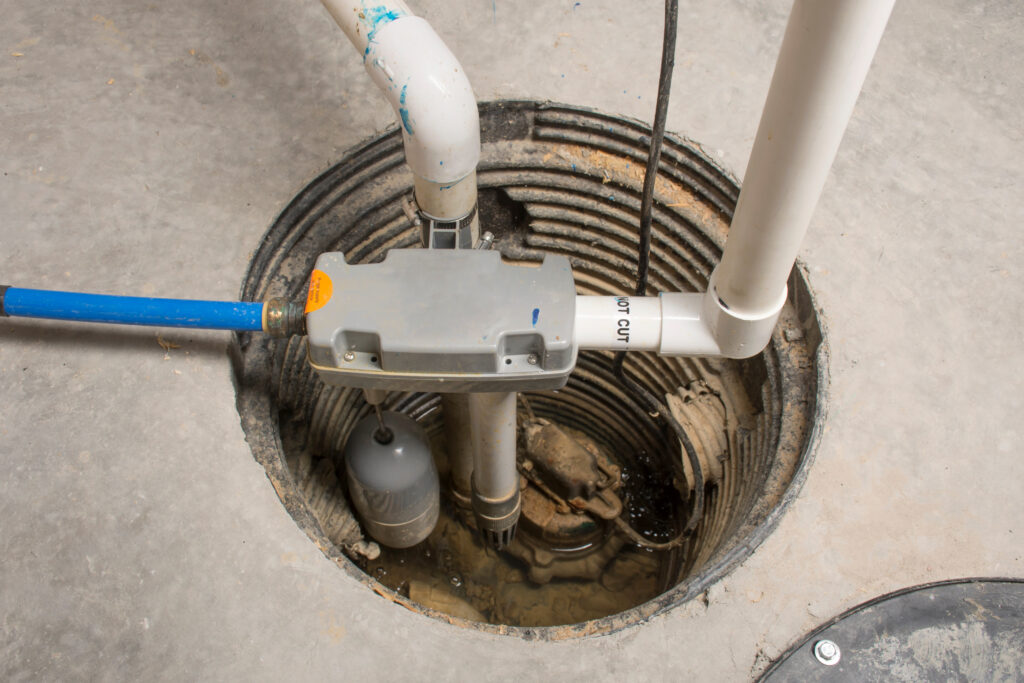
Choosing a good sump pump for basement is crucial to prevent water damage and ensure a dry living space. In this article, we will guide you through the process of selecting a reliable sump pump, ensuring you make an informed decision based on your property’s unique features.
What is a Sump Pump for Basement
A sump pump is a vital component for protecting your basement from water damage and flooding. It is typically installed in a sump pit or basin, strategically positioned in the lowest part of the basement floor. The primary purpose of a sump pump is to remove excess water that accumulates around the foundation of your home and redirect it away from the basement.
A good sump pump for basement will effectively and efficiently remove water, ensuring your basement remains dry and free from moisture-related issues. By investing in a reliable sump pump, you can have peace of mind knowing that your basement is protected, even during heavy rainstorms or periods of high groundwater levels.
Now that we understand the purpose and importance of a sump pump, let’s delve into why you need one in your basement and the specific benefits it provides.
Why do You Need a Sump Pump?
Having a good sump pump installed for basement offers multiple benefits that go beyond simply keeping your basement dry:
- Prevents Basement Flooding: A reliable sump pump is your first line of defense against basement flooding. By automatically pumping out excess water, it helps maintain a safe and dry environment, protecting your belongings and the structural integrity of your home.
- Minimizes Mold and Mildew Growth: Excess moisture in the basement creates a conducive environment for mold and mildew to thrive. A sump pump helps prevent water accumulation, reducing the risk of mold and mildew growth.
- Preserves Foundation Integrity: When water seeps into the basement, it can cause significant damage to the foundation. Over time, this can lead to cracks, shifting, and compromised structural stability. A sump pump prevents water from pooling around the foundation, preserving its integrity and minimizing the risk of costly repairs.
- Reduces the Risk of Electrical Damage: Excessive water in the basement poses a significant electrical hazard. A sump pump helps eliminate the risk of electrical damage by preventing water from reaching electrical outlets, appliances, and wiring systems.
- Enhances Property Value: Prospective buyers are more likely to be attracted to a home with a functional sump pump system, as it gives them confidence in the property’s resilience against water damage.
Choosing the right sump pump can be a daunting task. In the next section, we will guide you through the process of selecting a good sump pump for basement.
How to Choose a Good Sump Pump for Basement
When it comes to selecting a sump pump for your basement, it’s essential to consider various factors to ensure you choose the right one. Here’s a step-by-step guide to help you make an informed decision and select a good sump pump for basement.
- Evaluate Your Basement’s Needs: Start by assessing the specific needs of your basement. Consider factors such as the size of your basement, the frequency and intensity of rainfall in your area, and the water table level.
- Types of Sump Pumps: Familiarize yourself with the different types of sump pumps available. The three common types are submersible, pedestal, and battery backup sump pumps.
- Consider Pumping Capacity: The pumping capacity, also known as the gallons per hour (GPH) or gallons per minute (GPM), is an important factor to consider. It determines how quickly the sump pump can remove water from your basement. Calculate the pumping capacity needed based on your basement’s size and the amount of water you anticipate it will handle.
- Durability and Reliability: Look for sump pumps made of durable materials that can withstand the rigors of continuous operation. Stainless steel or cast-iron construction is preferred for long-lasting performance. Additionally, choose a sump pump from a reputable brand known for reliability and quality craftsmanship.
- Energy Efficiency: Look for pumps with energy-saving features, such as efficient motors and automatic shut-off mechanisms.
By carefully considering these factors, you can choose a good sump pump that meets the specific requirements of your basement. In the next section, we will discuss the best type of sump pump for basements in more detail, providing insights into their advantages and considerations.
Best Type of Sump Pump for Basement
When choosing the best type of sump pump for your basement, it’s important to consider your specific needs and the unique characteristics of each type. Let’s explore the advantages and considerations of each type to help you make an informed decision.
Submersible Sump Pumps
- Advantages: Submersible sump pumps operate underwater, providing efficient and quiet operation. They are ideal for basements with finished spaces or where noise is a concern. Submersible pumps are also less prone to clogging and offer higher pumping capacities.
- Considerations: These pumps are typically more expensive than pedestal pumps. Additionally, they require a larger sump pit due to their submersible nature.
Pedestal Sump Pumps
- Advantages: Pedestal sump pumps are more affordable and easier to access for maintenance. They are ideal for basements with limited space or shallow sump pits. Pedestal pumps also have a longer lifespan, as their motors are located above the water level, reducing the risk of moisture damage.
- Considerations: Pedestal pumps can be noisier compared to submersible pumps due to the motor being above the water. They also have a lower pumping capacity and are more visible in the basement.
Battery Backup Sump Pumps
- Advantages: Battery backup sump pumps provide protection during power outages. They have continuous operation and keep your basement dry even when the main electrical supply is disrupted.
- Considerations: Battery backup sump pumps require regular maintenance to ensure the battery remains in optimal condition. It’s important to periodically test the battery and replace it as needed to maintain reliable backup power.
If you are unsure of which sump pump is right for your basement, you can always ask basement waterproofing contractors to help you make a wise decision. At Pressman Home Services, our team of experts will always give you the best recommendation for a good sump pump for basement.
Sump Pump Installation Philadelphia
If you need sump pump installation in Philadelphia, it’s crucial to rely on experienced professionals like Pressman Home Services. Proper installation is essential to ensure your sump pump functions optimally and provides the necessary protection for your basement. Here’s why you should choose Pressman Home Services for your sump pump installation needs.
At Pressman Home Services, we use only top-quality sump pumps from reputable manufacturers. We ensure that the sump pump we install in your basement is reliable, durable, and capable of handling the demands of your specific basement conditions.
Choosing a good sump pump for basement is essential for safeguarding your property from water damage and ensuring a dry and protected environment. For professional sump pump installation in Philadelphia, trust the expertise and experience of Pressman Home Services. Contact us today to schedule a consultation and get a free estimate in no time.
